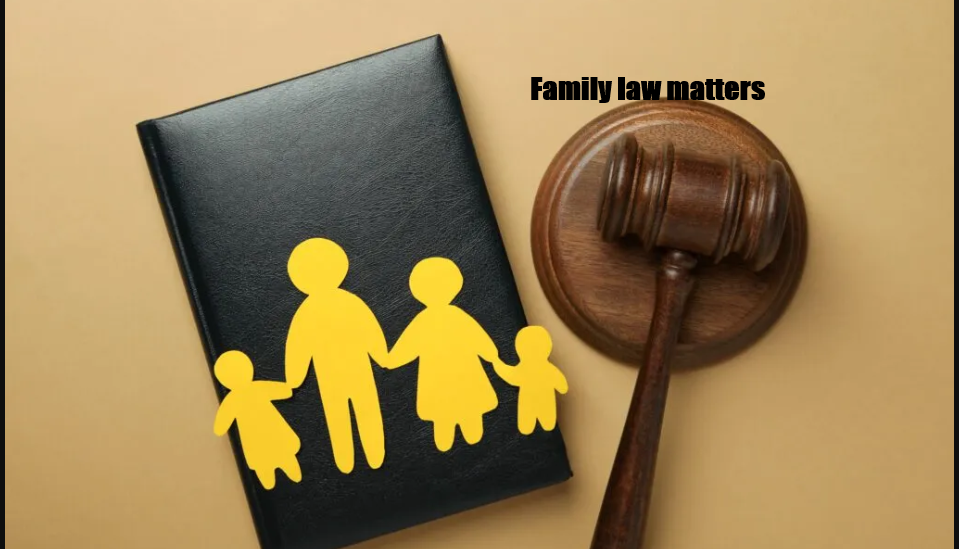Understanding the Divorce Process in Family Law
Divorce is a significant life event that often entails a combination of emotional turmoil and complex legal procedures. It goes beyond just the personal aspects and dives into strategic considerations that can impact your financial stability and family dynamics for years to come. The process involves dividing assets and debts, determining child custody and visitation schedules, and reaching agreements that prioritize long-term wellbeing and fairness.
At Legal Marketplace CONSULTANT, we understand that a carefully navigated divorce process is essential for protecting your future interests and those of your children. This article aims to provide an in-depth understanding of the divorce process, clarifying each step involved and emphasizing best practices to approach this challenging time strategically and calmly.
The Emotional and Strategic Nature of Divorce
Divorce is rarely just an emotional experience. While feelings of loss, anger, confusion, and stress are common and natural, it is crucial to approach the dissolution of a marriage with strategic foresight. Decisions made during a divorce can have lasting consequences, particularly in relation to financial matters and child welfare.
A structured and informed approach allows you to maintain control over an otherwise chaotic situation. This involves understanding your legal rights and obligations, having full transparency about financial matters, and prioritizing negotiations that foster stability for all parties involved. Reacting hastily or emotionally may result in unfavorable agreements or prolonged conflict.
Key Stages in the Divorce Process
The divorce process typically follows a series of steps that guide the involved parties towards a final resolution. These stages require careful attention and adequate legal support to ensure a fair outcome. Below is an outline of these fundamental steps:
- Filing for Divorce: Initiating the legal dissolution by submitting the necessary documents to the court.
- Serving Divorce Papers: Ensuring the other spouse is formally informed about the proceedings.
- Response and Discovery: Both parties disclose relevant information about finances, assets, debts, and other pertinent factors.
- Negotiations and Mediation: Attempting to reach agreements on asset division, child custody, and support arrangements.
- Court Hearings and Trial (if necessary): Presenting unresolved matters before a judge for a binding decision.
- Finalizing the Divorce Decree: Formal approval of the agreement or court rulings, concluding the legal process.
The Importance of Full Financial Disclosure
One of the most critical elements in a divorce is the financial disclosure phase. Both parties must provide complete and honest information regarding all assets, liabilities, income sources, and expenses. This transparency is vital to reach equitable agreements and avoid disputes.
Hidden assets or undisclosed debts can severely undermine the negotiation process and damage your case if discovered at a later stage. Courts consistently emphasize the need for good faith and full honesty during divorce proceedings. Therefore, failing to disclose pertinent information can lead to legal penalties and unfavorable judgments.
Asset and Debt Division
Dividing marital property is often one of the most complex and contentious aspects of divorce. Assets may include real estate, bank accounts, investments, retirement plans, vehicles, and valuable personal property. Debts such as mortgages, loans, and credit card obligations also need to be allocated fairly between spouses.
The key principle guiding asset division is usually equitable distribution, which means a fair – but not necessarily equal – sharing based on each party's contributions and needs. This process often requires detailed valuation and sometimes expert appraisals to determine the true worth of complex assets.
Child Custody and Visitation Considerations
When children are involved, the stakes of divorce elevate dramatically. Determining custody and visitation schedules revolves around the best interests of the child, ensuring stability, emotional security, and ongoing parental involvement.
- Legal Custody: Decision-making authority concerning the child's welfare and important life choices.
- Physical Custody: The living arrangements and everyday care of the child.
- Visitation Rights: Structured time for the non-custodial parent to engage meaningfully with the child.
- Child Support: Financial contributions to cover the child's needs, including education, healthcare, and general living expenses.
Achieving amicable agreements in these areas often involves setting clear schedules that balance each parent's availability and the child's routine. Courts favor arrangements that minimize disruption and foster healthy relationships.
The Role of Mediation and Legal Assistance
Mediation offers a collaborative platform where parties can negotiate terms with the assistance of a neutral third party. This process tends to be less adversarial, more cost-effective, and quicker than traditional court battles. It encourages mutual understanding and creative solutions.
Nevertheless, given the complex legal and emotional dimensions of divorce, consulting with experienced family law attorneys is highly recommended. Skilled legal counsel ensures your rights are protected, helps you understand legal implications, and negotiates favorable settlements.
Avoiding Rash Decisions: Focusing on Long-term Stability
It is natural to feel pressure to finalize divorce agreements swiftly to alleviate emotional and financial stress. However, rushing can lead to oversights and disadvantageous arrangements. Taking measured, informed steps enhances the likelihood of outcomes that stand the test of time.
Considerations should include future financial security, maintaining healthy co-parenting, and preserving personal dignity. Long-term planning also encompasses revising wills, insurance policies, and beneficiary designations post-divorce to reflect new realities.
Legal Resources and How Legal Marketplace CONSULTANT Can Help
Legal Marketplace CONSULTANT specializes in providing comprehensive legal support for family law matters, including divorce. Our professionals bring deep expertise, empathy, and strategic guidance to assist you throughout the divorce process.
Whether you need help with initial consultations, document preparation, negotiation support, or representation in court, we are here to protect your interests. Early and proactive engagement with legal counsel frequently leads to more favorable outcomes and reduces stress.
For personalized assistance, reach out to us via the communication channels provided in our bio or send a private message. Our team is ready to guide you with confidentiality and professionalism.
Divorce is a multifaceted process requiring both emotional resilience and strategic planning. Approaching it with a focus on full financial disclosure, fair asset and debt division, and child-focused custody arrangements lays the foundation for a stable future. Don't rush decisions; instead, engage knowledgeable legal professionals to support you every step of the way.
By prioritizing clear communication, transparency, and thoughtful negotiation, you can protect your rights and foster a smoother transition into your post-divorce life.
Legal Marketplace CONSULTANT is a trusted legal firm specializing in comprehensive family law services, offering strategic and tailored support for individuals navigating the complexities of divorce and related matters.































